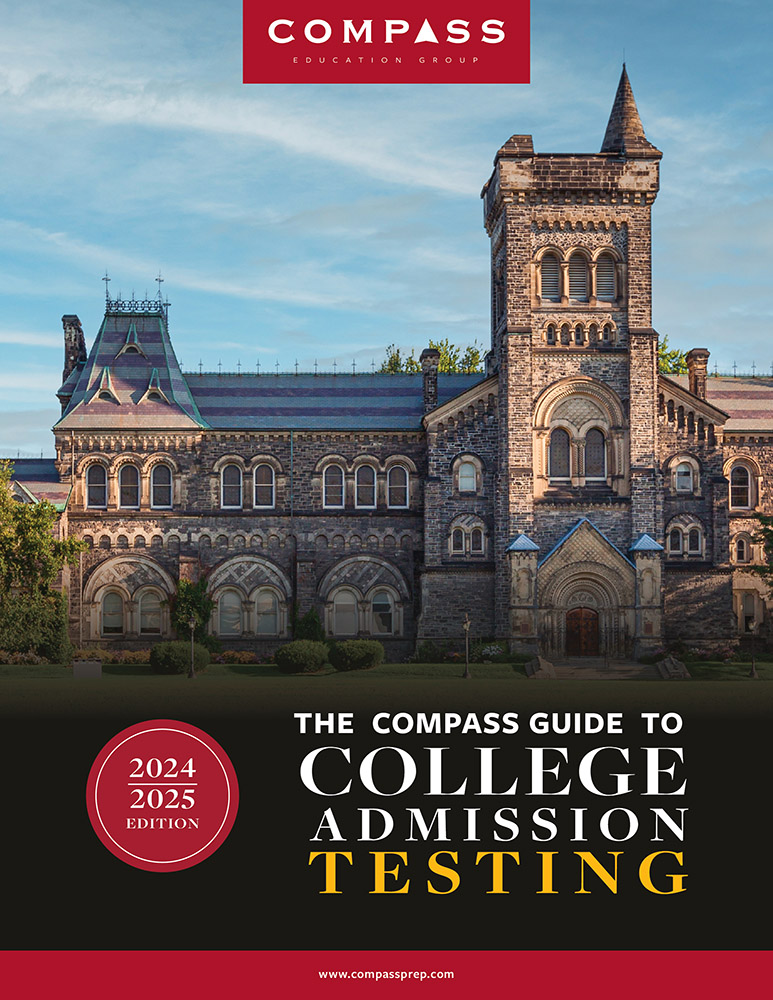June 18,2020 Update: In order to prioritize availability of full ACT testing for students this fall, ACT has postponed the September 2020 debut of Section Retesting. It has not announced when Section Retesting will be become available. In-center computer-based testing — “Online Testing” — will be available at some testing locations in September. Superscore reporting will continue as planned. ACT has announced that an entirely new option for at-home testing will become available in “late fall/early winter.”
Online Testing
ACT will make online testing available to students on national test dates starting in September 2020. Paper-and-pencil tests will not be going away, and Compass expects there to be serious shortages in online seats. Despite the name, online tests are taken on school-controlled computers in special classrooms and computer labs. It will be an intriguing option, but should not drive testing decisions. Test content and length will not change. The test will not be computer adaptive (a test-type familiar to those of you who took the GRE or GMAT in recent years). We’ll be talking more about it as it comes into focus.
Superscore Reporting
Superscore reporting is something of a marketing gimmick to present ACT as superscore friendly (it has traditionally been seen as superscore unfriendly). Students will be able to send colleges a report that includes just their best section results (superscore). While this adds convenience, it doesn’t alter the superscores that colleges themselves already calculate. It is only applicable at colleges that choose to superscore, so it doesn’t change the net result for students. Some colleges that superscore may still request traditional reports, because their IT systems will need to be updated or they may prefer to receive full test dates. ACT’s support of superscoring may encourage more colleges to adopt this option, but the superscore report itself is not a critical change.
Section Retesting
After students take a full ACT, they will be able to choose to retake individual sections on future test dates starting in September 2020. Section retesting must be done online. A student, for example, could decide to only retake Reading and Science. This seems intuitively appealing. Compass believes that this reaction is overly optimistic and recommends students not yet make tutoring or testing decisions based on section retesting.
Section retesting is a radical proposal that does not yet have widespread support. Among our concerns:
- Section retesting will not be available until at least September 2020. Online testing will not be available at national test dates until September 2020. For your class of 2021 students, then, the option would only be available late in their testing timelines. It would also require a shift to online testing after previously doing paper-and-pencil testing.
- There is legitimate concern that the logistics around administration and acceptance of section retests will delay or kill off this option. Students should be wary of counting on the availability of section retesting.
- Compass’s experience with testing is that students are not good at predicting when and where gains will be achieved across the 4 ACT sections. They often fixate on their weakest score. A superscore gain, though, can come from any section—unless a student already has a 36 on a section. Taking advantage of section retesting lowers, in most cases, students’ chances of raising their superscores. Except in special cases, Compass expects to discourage section retesting.
- Compass’s skepticism also comes from the fact that colleges have not weighed in. ACT is trying to assure colleges that section retest scores are comparable to full-exam retest scores. This view has not yet been accepted by colleges and, to our knowledge, not a single college has yet said that it will superscore with incomplete tests. Colleges tend to be conservative and may choose to wait at least an admission cycle. The University of California system is among the colleges that will only look at scores from complete test dates. Without a significant policy change, a section retest will be a wasted retest.
- Compass is also concerned about the ability of testing centers to provide sufficient capacity for online testing. Section retesting compounds the logistical problems. Students wanting to do online testing or section retesting next fall may find themselves unable to do so.
- ACT has introduced section retesting and superscore reporting as marketing techniques to encourage more superscoring and more retesting. At present, more than twice as many top colleges reject superscoring of the ACT as reject superscoring of the SAT. While it will be nice if this gap closes, students should not be making plans under the assumption that it will close in time for the class of 2021.
- If justifying a decision on SAT versus ACT based on section retesting, students should also consider that every other ACT test-taker will have the same option. We may see score inflation—or at least enough of a threat of score inflation—that colleges will take a wait-and-see approach.
The ACT remains an excellent option for many students, and this set of announcements does not change that. Compass sees a 50/50 split between ACT and SAT preparation and will continue to recommend test choice based on individual circumstances and strengths.
In summary for section retesting:
- None of this matters at all to the class of 2020 students.
- Section retesting is not a done deal.
- Section retesting becomes available late in the game for the class of 2021.
- Section retesting requires a switch to online testing late in the process.
- Section retesting relies on colleges (a) superscoring and (b) updating superscoring policies to allow for section retesting.
- Section retesting will encounter logistical problems during its rollout, which will come at a critical time in the application process for the class of 2021.
- Section retesting will actually reduce, for most students, their odds of achieving a higher superscore.
- Potential gains from section retesting will be available to all students, so may not provide a net advantage.
- Section retesting is an interesting and, potentially, beneficial concept. At present, it should be treated with skepticism.



I earned a 35.25 ACT (36 E, 36 M, 36 R, 33 S) in a single sitting, but I am concerned that more ACT retaking/superscoring will devalue my score. Should I take the SAT, retake the ACT, or leave my score as-is?
BH,
First, superscoring already exists at about 2/3 of colleges for the ACT and about 80-85% for the SAT. The numbers for the ACT may go a little higher, but it’s hardly a tectonic shift. As for Section Retesting, we don’t know the impact. I don’t think it will change things dramatically, especially for your class (I am assuming that you are a junior). Yours is one of the few cases where I might counsel Section Retesting. But only if you know that your target schools will accept them! On a superscoring basis, you only need to bring up Science by a single point to have a 36. Of course you could do the same thing retaking the entire test, too. Definitely don’t consider the SAT at this point. Stand pat at 35 (great score!) or go for the 36.
Hi,
Is the Reading Section of the ACT definitely being given? Can we take it online at home?
Can you give us details to these questions at this time?
Thank you!
Hi Kim,
The reading test is a required portion of the complete ACT and it will be given to all test takers. However, after a student takes their first complete ACT, they could opt to take single-section retake exams and would not be required to repeat the reading section. Online at-home testing was postponed due to COVID-19 and we haven’t received any updates from ACT yet, though we anticipate they will release an announcement soon!
Since the ACT has opted not to roll out its own superscoring report option at this time due to Covid, how do you advise families weigh the pros and cons of sending ACT scores using the four free score report option (when registering for the test) vs. waiting to see what the score are before sending them? As I understand it, it currently costs $13 per test date per school to send scores after the fact, so a student who takes the test 2-3 times and decides to share all of the scores (perhaps to schools who supercore the ACT) without using the free score report option would be spending $26-$39 per school, which could get pretty steep for students applying to 8 or more schools. At the same time, many students fear sharing their scores before they themselves know what they are for fear it will hurt their chances of admissions should they do poorly. I know there isn’t one right answer here, but I am just curious as to your opinion on how to tackle this conundrum. As a counselor who advises families, your input on this matter is greatly appreciated.
Heidi,
Students are often concerned about a poor performance going to a college, but most schools will evaluate the applicant’s highest score or superscore. Students can always choose the free recipients strategically, picking colleges with a clear superscoring policy. It may not be an issue for the class of 2022 and beyond, since we expect ACT to roll out superscore reporting for next year’s class.